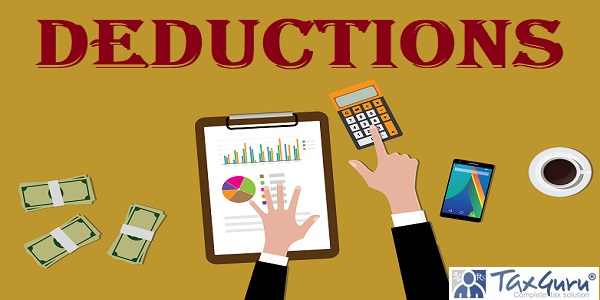As a taxpayer, you might be claiming various expenses and exemptions to lower your income tax liability, but do you know that there are certain deductions that you can’t claim unless you have actually paid for them. In this article will understand those deductions and discuss the income tax provisions laid out under Section 43B of the Income Tax Act.
Section 43B states that specific statutory expenses could be claimed only in the year of actual payment. This section disallows the expenses which are not paid in the financial year or prior to the due date of filing income tax returns. Section 43B in short, deals with specific types of payments and guides an assessee to claim such payment as an expense in the assessment year in which it’s actually paid and not in the year where the liability for such payment was incurred.
For instance, Mr. Asthana, owner of a company employing 100 people, has paid the PF (provident fund) which is due to be paid to his employees in August 2019. This sum of provident fund relates to March 2019. In this case, Mr. Asthana can claim the payment of PF as the deduction for the financial year ending March 2019 itself by showing the proof of payment of PF while filing his return in September 2019 as he has paid on or before the due date of filing the income tax return. However, if Mr. Asthana fails to pay the PF on or before the due date of filing the income tax return and pays it in October 2019, this deduction would be available for a deduction for the financial year ending March 2020.

Deductions under section 43B that are allowed only on actual payment
- Taxes – Any tax, duties, cess, or fees that are paid under any law for the time being in force are allowed as a deduction only when paid.
- Contribution to Employee Benefits – Contribution to any recognized employee’s benefit fund by the employer such as provident fund, gratuity, superannuation fund, before the due date for depositing such funds or before the due date of filing tax returns
- Bonus or commission – Bonus or commission should be the actual bonus or commission which is paid to the employees.
- Interest on borrowings – Interest on loans borrowed here pertains to the interest payable on the loans borrowed by the taxpayer from a public financial institution, state financial institution, state industrial investment corporations and are based on the terms and conditions of such contract. Such payment of interest on the loan availed from aforesaid institutions and also from scheduled banks will be allowed as a deducted from the taxpayer’s business income. Also, if the interests have been converted into a loan, such conversion won’t be considered as a payment of interest and won’t be allowed as a deduction.
- Leave encashment – Another addition to this list is leave encashment which is the sum of money paid that an employer pays to the employees leaving the organization for their unutilized leaves.
- Payment to Indian Railways – An assessee can claim the payment to Indian railways as an expense if it has been remitted to the Indian railway accounts in the financial year or before furnishing the income tax return. If such payment is remitted after the due date of furnishing the tax returns, such expense would be allowed as a deduction in the year of actual payment.
Therefore, for assessees having income from business or profession and maintaining their books of accounts under the mercantile basis of accounting, it’s crucial to keep in mind the above provisions, otherwise, they may not be entitled to such deductions.





